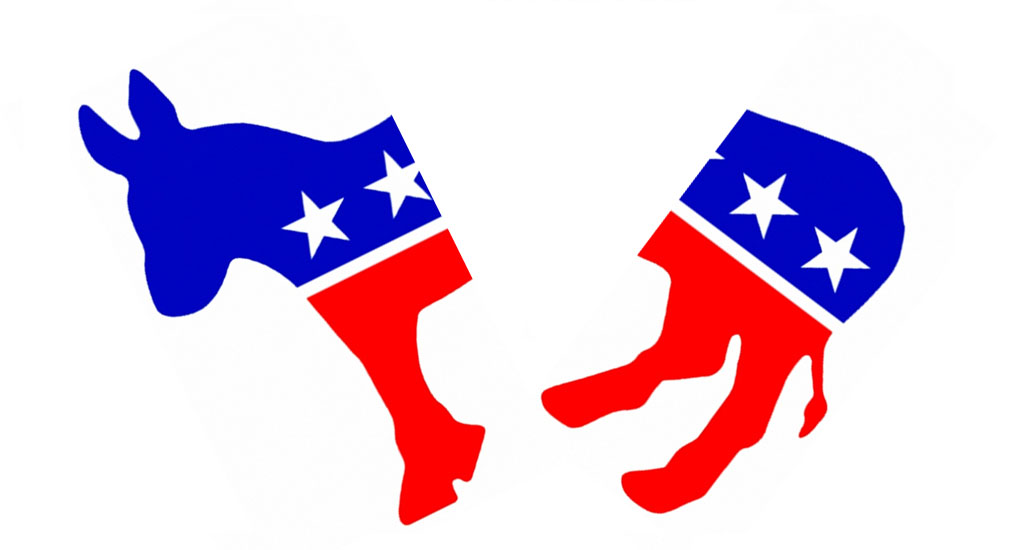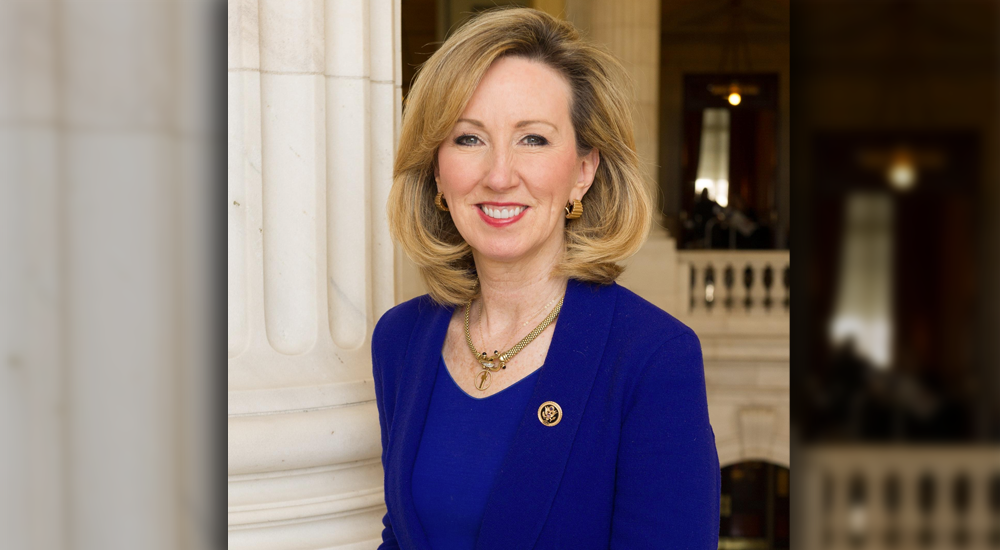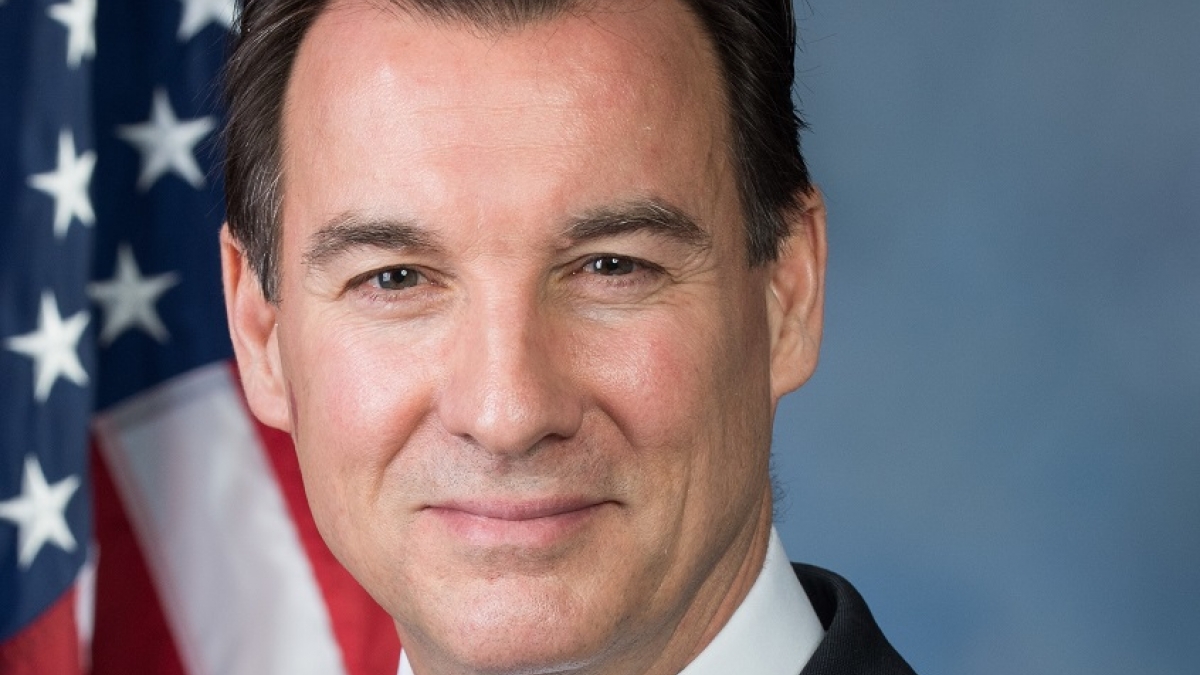After a review was done in the Hampton VA revealing long wait times for ailing veterans, Congressman Scott Taylor sent a letter to VA Secretary Shulkin.

Virginia's Public Square
Virginia's Public Square

After a review was done in the Hampton VA revealing long wait times for ailing veterans, Congressman Scott Taylor sent a letter to VA Secretary Shulkin.

The March for Gun Control showed that its purpose was not about addressing student safety, but was about Democrat’s lust for power and control.

Just hours before yet another government shutdown, President Donald Trump reluctantly signed the $1.3 trillion congressional omnibus bill set to keep the federal government open through September. Trump’s Twitter teased a possible veto early Friday morning as he complained that the legislation did not include funding for the border wall with Mexico or deportation protections for the 800,000 “DREAMers.” Nevertheless, the president moved forward with the signing, citing the need for military funding.
Before the 256-167 House vote passing the bill to be signed by the president, Washington lawmakers had just over 16 hours to read the 2,232-page omnibus bill after it was posted online.
“Shame, shame. A pox on both Houses – and parties,” Senator Rand Paul (R-KY) said via Twitter. “No one has read it. Congress is broken,” he added.
As members of Congress fled Washington, the bill also lined the pockets of lawmakers after budget increases for operating costs of both chambers of the legislature were included.
According to a report from the Washington Free Beacon, the Senate increased its total budget to $919.9 million, up $48.8 million from fiscal year 2017. Salaries of officers and employees were also increased by $12.6 million. The Senate also increased its expense account, as expense allowances are going from $177,000 to $192,000, an increase of $15,000.
“The increase provides funding necessary for critical modernization and upgrades of the Senate financial management system and investments in IT security,” the congressional summary states according to the report.
Moreover, the House increased its budget to $1.2 billion, which is $10.9 million above 2017 levels. However, salaries were kept the same at $22.3 million and expenses were lowered by $4.4 million.
Congressional committee offices also received an increase of $22.9 million in salaries, up from $181.5 million in 2017 to $204.4 million in the final bill.
When Trump signaled a veto of the wasteful spending bill early Friday, Chairman of the House Freedom Caucus Republican Mark Meadows (NC-8) said he would “fully support” the president’s measure, as stated in a post from AP. He also added that the Trump Administration and congressional leaders should, “negotiate a better deal for the forgotten men and women of America.”
Although both parties in Congress wanted to avert a third shutdown this year, the omnibus bill also busted through the federal budget cap, angering conservatives. It also failed to provide a permanent fix for young immigrants protected under the Deferred Action for Childhood Arrivals (DACA) Act, a measure which Democrats have consistently vied to secure.
Trump has pinned the failure for a DACA solution on Democrats, claiming, “They don’t want DACA” and are only using a status for immigrants as “a political football.”
As a crowd gathered in the White House, Trump stood in front of cameras calling the signing of the bill a “ridiculous situation” after a stack of documents over one foot tall was placed to his right. In chastising Congress for its mounds of spending documents released just hours before the vote, Trump said, “You tell me who can read that quickly. Takes a long time to read it.”
In light of funding need for the military, Trump was still highly-dissatisfied with the wasteful omnibus bill, saying there is, “no one more disappointed than me.”

Meanwhile in VA-10, embattled Democratic State Senator Jenny Wexton (D-Fairfax) is struggling to get support from even 3 in 10 of her own political base.

Citigroup’s CEO has announced stringent policies for clients purchasing firearms. Does this circumvent the Second Amendment to the U.S. Constitution?

Allegations of voter intimidation and a corrupt electoral process as led Richmond City Democratic Party’s chairman, J.J. Minor, to be thrown out.

In the fight for VA-10, incumbent Barbara Comstock understands that all politics is local – voters won’t be pressured by the larger progressive narrative.

Tensions between the U.S. and Russia have become inflamed after the Trump Administration’s sanctions on Putin-backed aggressors. One of the the latest incidents victimized Western ally Britain after former Russian double agent Sergei Skripal was poisoned with a Soviet-era nerve agent, according to the Ministry of Defence’s Porton Down laboratory. Moreover, the sanctions come after Russian President Vladimir Putin, who was recent elected to a fourth consecutive term, launched cyberattacks and interfered with the domestic power grid, financial firms, and, most controversially, the election system in the U.S.
In response to the subversive tactics from Moscow, President Donald Trump has issued sanctions on the Russian state, a measure fully supported by Britain, France, and Germany. The sanctions target the same three Russian organizations and 13 individuals currently under indictment from White House Special Counsel Robert Mueller for malicious cyberattacks carried out during the 2016 presidential election season. As well, two companies and six other individuals have been added to the sanctions list after various cyberattacks were launched on the U.S. dating back to March 2016, including a previously unconfirmed attempt to penetrate the domestic energy grid.
According to a report from the New York Times, Treasury Secretary Steve Mnuchin issued a statement saying, “The [Trump] Administration is confronting and countering malign Russian cyberactivity, including their attempted interference in U.S. elections, destructive cyberattacks and intrusions targeting critical infrastructure.”
“These targeted sanctions are a part of a broader effort to address the ongoing nefarious attacks emanating from Russia.”
Republican Congressman Scott Taylor (VA-2) appeared on Fox News this weekend to answer the questions surrounding the latest sanctions from President Trump and the ongoing aggressive cyber tactics from Russia.
Are they doing enough?
“This is certainly a good first step…they imposed sanctions, but also joined in [with] our allies in the U.K.,” Taylor said. Though, the congressman, who is a member of the House Subcommittee on Homeland Security, believes that, “we have to ratchet it up.”
“Quite frankly, Russia’s been a bad actor – clearly they were trying to meddle in our elections…that started under the last administration,” he said.
Under the Obama Administration, a lack of strong leadership on the international front led to the furtherance of the power vacuum in the Middle East, spurred on by unfavorable moves from Putin’s Russia. Moscow has held a vested military interest in the area which has allowed the lingering civil war in Syria to seemingly have no end.
Furthermore, due to previously weak international leadership by the U.S. and the West, Russia’s occupation and subsequent annexation of the Crimean Peninsula has caused an geopolitical imbalance currently encroaching into Europe. The cyberattacks led by Russia on Western nations have allowed Putin’s government to become a key player for non-U.S. allies to conduct operations of aggression.
With Russia establishing dominance in the cyber arena, the U.S. must keep up with the very overt and direct offensives launched from the Kremlin. Taylor opined on the fact that cyberwarfare, while not specifically a new tactic, is becoming a tactic which is used more often and U.S. must recognize this in policy stances.
“The U.S. needs to have a policy, a broad policy…a Monroe Doctrine, if you will, in cyber that tells the world and certainly Russia what they will not do,” Taylor said.
Taylor also believes there is a “lack of understanding” surrounding the evolutions in cyberattacks and computing technology and that there needs to be a “revolution” in the country’s response to increasing attacks. This is magnified by the fact that cyberattacks are not conducted solely on military targets. Typically, the victims of cyberattacks are in the private sector.
The U.S., “doesn’t have a policy on what is an act of aggression in cyberspace, an act of war in cyberspace, an act of disruption,” Taylor explained. “90 percent of cyberspace is in private hands…never again will we have a conflict that doesn’t have some cyber component to it. Gone are they days where you [just have] a military target and a civilian target.”
With the previous attacks on American industrial and energy corporations, it may suggest that Russian state-sponsored hackers have been mapping U.S. and other Western industrial, energy, and nuclear facilities in preparation for eventual sabotage. To this new threat of Kremlin-backed interference in civilian infrastructure, Taylor says the Trump Administration must, “lead as a nation – to create policies and set the rules of the game internationally.”
Although the Russian government has been the main instigator of acts of aggression via cyberwarfare, Taylor told Fox News that in the future, nations will not be the only belligerents the U.S. will encounter.
“As computing power gets better, it won’t just be nation states we’ll have to worry about, it’ll be transnational actors, terrorist organizations, criminal syndicates, and even individuals,” he said.
“It’s important and we need to grab the bull by the horns and get moving on this,” Taylor stated. With the election of Donald Trump, the U.S. has been positioning itself back on the world’s stage as a main proprietor of police power. If Congress steps up to the plate, Russia’s continual intrusion into Western affairs will inevitably confront a domestic bulwark that will shielded by improvements in cybersecurity infrastructure.
Taylor says the U.S. and Western allies must put the pressure on Putin and proclaim, “you will not go any further.”

In his first veto session as governor, Ralph Northam put caps on state legal fees and franchise labor laws on the chopping block.

After calling for stricter gun control measures, Democratic Congressman Tom Suozzi (NY-3) is now pointing to the Second Amendment to oppose Trump.